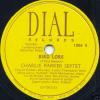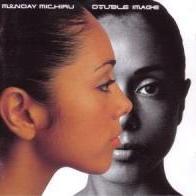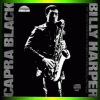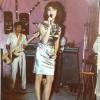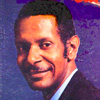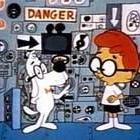-
Posts
11,694 -
Joined
-
Last visited
-
Donations
0.00 USD
jeffcrom's Achievements
Newbie (1/14)
-
The second half: 7. Metronome All Stars: "One O'Clock Jump" (from The Metronome All-Star Bands (RCA) Harry James, Ziggy Elman, Cootie Williams (tp) Tommy Dorsey, J.C. Higginbotham (tb) Benny Goodman (cl) Toots Mondello, Benny Carter (as) Coleman Hawkins, Tex Beneke (ts) Count Basie (p) Charlie Christian (g) Artie Bernstein (b) Buddy Rich (d); January 16, 1941, NYC 8. The Allman Brothers Band with Roy Haynes: "Afro Blue" (from Jones Beach Theather, Wantagh, NY 6/27/06, ABB Instant Live) Gregg Allman (org) Derek Trucks, Warren Hayes (g) Oteil Burbridge (b) Marc Quinones (perc) Roy Haynes (d); June 27, 2006, Wantagh, NY 9. Teddy Bunn: Jackson's Nook (Selective 78) Pony Poindexter (as) Jerome Parsons (p) Teddy Bunn (g,vcl) Curtis Counce (b) Bryan Allen (d); 1949, LA 10. Dixieland Jug Blowers with Johnny Dodds: Memphis Shake (from Johnny Dodds: Blue Clarinet Stomp, RCA) Johnny Dodds (cl) Lockwood Lewis (as,vcl) Clifford Hayes (vln) Cal Smith, Freddy Smith, Curtis Hayes (bj) Henry Clifford (jug) Earl McDonald (jug); December 11, 1926, Chicago 11. Eddie Costa - What's To Ya (from House of Blue Lights, Dot) Eddie Costa (p) Wendell Marshall (b) Paul Motian (d); January 29 & February 2, 1959, NYC 12. Sonny Boy Williamson - I See a Man Downstairs (aka "One Way Out") (from Don't Send No Flowers, Charly) Sonny Boy Williamson (vcl,hca) [aka Rice Miller (vcl,hca) ] acc by Joe Harriott (as) Alan Skidmore (ts) Brian Auger (org) Jimmy Page (g) Ricky Brown (b) Micky Waller (d); April, 1965, London
-
Thanks for listening and commenting. Many of the older recordings are available on many reissues; I have pictured the albums from which I got the tracks. Here's the first half: 1. Kenny Clarke and his 52nd Street Boys: Royal Roost (recorded for the French Swing label; from The Bebop Revolution on RCA) Fats Navarro, Kenny Dorham (tp) Sonny Stitt (as) Ray Abrams (ts) Eddie De Verteuil (bar) Bud Powell (p) John Collins (g) Al Hall (b) Kenny Clarke (d); September 5, 1946, NYC Dorham plays the first trumpet solo. 2. Dave Brubeck: - You'll Never Know (from Indian Summer, Telarc). March 8/9, 2007, NYC 3. Bradford/Gjerstad Quartet: and me, me and you (from Silver Cornet, Nessa) Bobby Bradford (cnt) Frode Gjerstad (as) Ingebrigt Haker Flaten (b) Frank Rosaly (d); March 30, 2014, Baltimore, MD The unusual title is the result of the three track titles forming a little poem: Silver Cornet tells a story about you and me, me and you 4. New Orleans Feetwarmers: I've Found a New Baby (from Sidney Bechet: The Victor Sessions Master Takes 1932-43, RCA) Tommy Ladnier (tp) Teddy Nixon (tb) Sidney Bechet (sop-1,cl-2) Hank Duncan (p) Ernest Wilson Myers (b,vcl) Morris Morand (d) September 15, 1932, NYC 5. Yusef Lateef: Koko's Tune (from Into Something, Prestige/New Jazz) Yusef Lateef (ts) Herman Wright (b) Elvin Jones (d);December 29, 1961, Van Gelder Studios 6. Anthony Braxton: Composition 138A (Ballade) (from 19 [Solo] Compositions, 1988, New Albion); April 8, 1988, Cambridge, Mass.
-
I posted about this, but it was combined with another post. I have been asked by the BFT administrator to wait until Friday, May 3 to post the reveal. I'm ready any time; unless I am told otherwise I'll post the selections tomorrow morning.
-
I wasn't going to respond to this, but I'll give it a shot. Understood that everyone has different tastes, and that a majority of music listeners (or art lovers, or poetry readers) are not inclined to enjoy the most challenging, avant-garde offerings in those fields. Nothing wrong with any of that. But since you're curious, here's my perspective, with some personal history. Music like this gives me feelings/reactions that no other kind of music provides. It gives me a kind of slightly abrasive excitement, and I enjoy "watching" (that's how I think of it) the musicians interact and respond to each other. (And they are listening and interacting, even if it sounds random to you). And when the trumpet player returns at the end with the same abstract Texas blues licks (that's a hint) that he started with, I find it immensely satisfying. Again, everyone is different - but I have found that I have to understand what's going on at some level to enjoy any kind of music. I've probably told this story before, but I once had a very similar reaction to this kind of music that you are having, lipi. I acquired a sampler album on the Arista/Freedom label when I was about 16. It was my introduction to "free jazz," and I liked some of it right away. But there was a track by Albert Ayler, and I was horrified and repelled by it. It seemed like the ugliest music I had ever heard. But I was also fascinated and curious - in my case, curious enough to listen again, because I wanted to know why anyone would make music that sounded like that. On my third listen, I realized that Ayler was playing a recurring melody - so abstract that I didn't hear it at first - that ran through the piece. As soon as it started to musically make sense to me, I could start to get an emotional message (other than revulsion) out of the music. Not that you or anyone else "should" like this track, or anything else you don't care for. I've had a taste for the unusual since an early age, and not everyone does. But if you're interested in giving the track another try (and I'm not suggested that you should), concentrate on what the trumpet player is doing, and how the saxophone player responds to that - throwing it back with an even more abstract flavor. I don't know whether or not this is related, but I never liked Kid Thomas Valentine's trumpet playing until I heard Lester Bowie's. I heard a lot of the same sounds and impulses.
-
Yep. I love the whole Memphis-north-to-Louisville jug band scene of the 1920s, and love that Dodds fit right in with them. And as a 78 collector, I love that this side is the flip of Jelly Roll Morton's "Doctor Jazz."
-
It's Braxton. Sorry if my response was confusing.
-
Thanks for listening. I have been asked by Hot Ptah, the BFT administrator, to extend my test a few days. The May test will be slightly delayed, apparently. I will post the details about my selections on Friday, May 3.
-
One more week to go, if anyone else is interested.
-
Correct on track 2. I don't think the Indian Summer album is a masterpiece or anything like that, but it's one I always enjoy when I play it. The slightly melancholy, bittersweet flavor is consistent through the album, which was his final studio recording, I believe. It feels like a valedictory look back on his life. The last time I saw Braxton play solo was a couple of years ago, when he was artist-in-residence for a couple of weeks at the University of Alabama. I judged the audience at his opening solo concert to be 1/3 excited Braxton fans, 1/3 curious music lovers, and 1/3 music students trying to fulfill their concert attendance requirements. I wondered how the last two groups would respond to the concert, but Braxton's programming was masterful. He started with a lyrical ballad like this, then moved on to a fast, technically impressive virtuoso piece. After those two selections, the audience was with him, and stayed with him when he started playing abrasive multiphonics and such. Yes - all solo readings of standards.
-
This session is pretty much a mess, but it's kind of a glorious mess. I included what I think is the best selection. Some of the other tracks really sound unfinished. But I love anything with Sonny Boy, and have always enjoyed Joe Harriot just going for it on this track.
-
Um, I'd say that it's beyond a good Sonny Boy Williamson imitation. Like, the best possible. Literally. And yes, the organ sounds like a Vox or some other combo organ to me.
-
Since there has been a fair amount of Allman Brothers discussion in this thread, I'll throw in a correction. Dickey Betts and Derek Trucks did play together in the ABB for a short time when Trucks first joined the band. (Haynes had left to form Gov't Mule.) There's even an album - Peakin' at the Beacon, recorded at the Beacon Theatre in March, 2000. This was when Betts was getting more and more erratic and his playing getting sloppier; his Beacon performances were so bad that they led the other founding members to disinvite him from the spring/summer tour. Jimmy Herring filled in for a short time, then Warren Haynes came back to complete the final lineup of the band. Peakin' at the Beacon is so bad that I once wondered why the band released it. Not only are Betts' solos substandard, but he is unable to play some of the ensemble parts correctly - parts he must have played thousands of times. I think the album is the band's explanation to the fans of why they let Dickey go: "This is what we were dealing with."
_forumlogo.png.a607ef20a6e0c299ab2aa6443aa1f32e.png)

